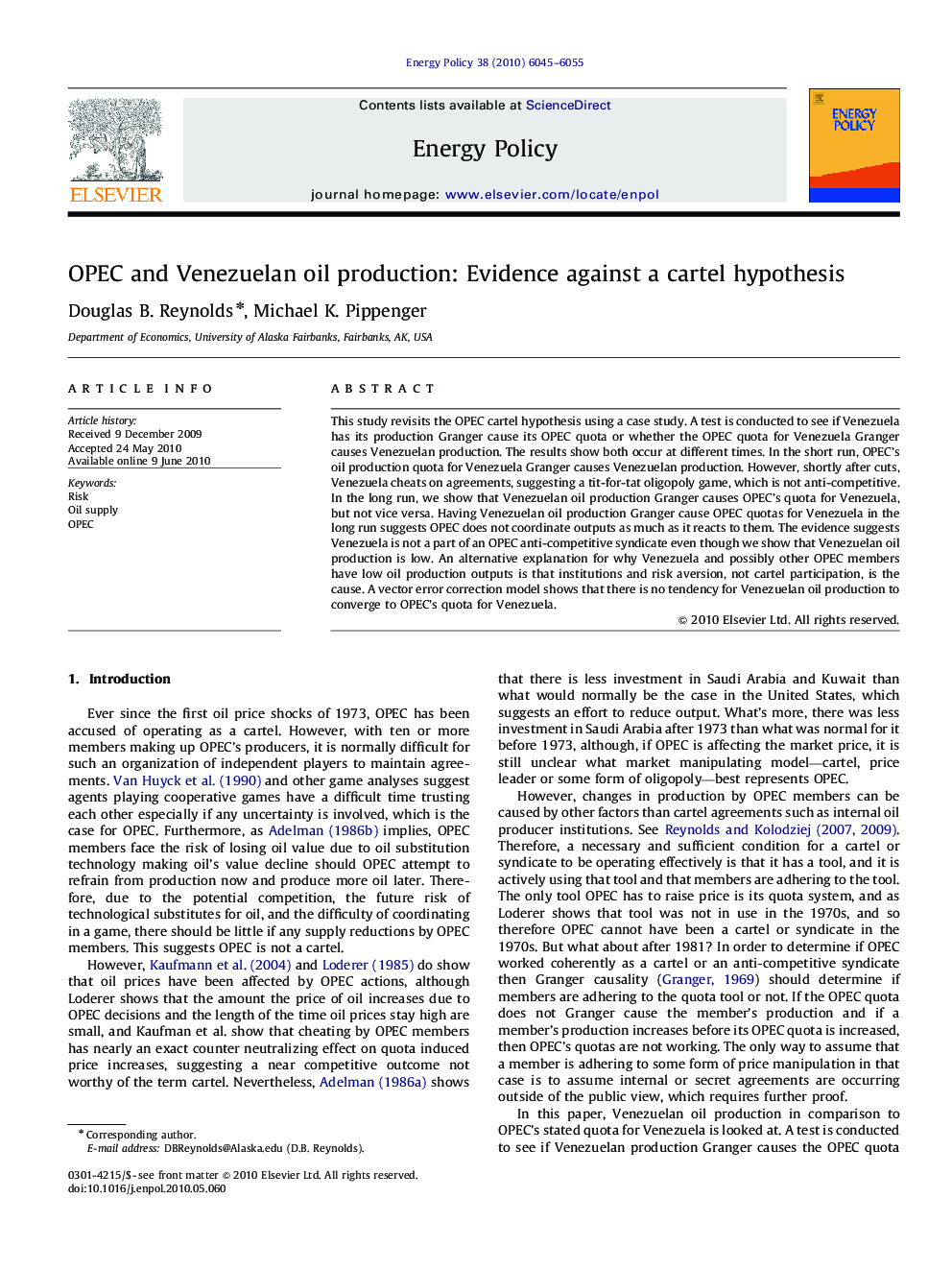| Article ID | Journal | Published Year | Pages | File Type |
|---|---|---|---|---|
| 996044 | Energy Policy | 2010 | 11 Pages |
This study revisits the OPEC cartel hypothesis using a case study. A test is conducted to see if Venezuela has its production Granger cause its OPEC quota or whether the OPEC quota for Venezuela Granger causes Venezuelan production. The results show both occur at different times. In the short run, OPEC’s oil production quota for Venezuela Granger causes Venezuelan production. However, shortly after cuts, Venezuela cheats on agreements, suggesting a tit-for-tat oligopoly game, which is not anti-competitive. In the long run, we show that Venezuelan oil production Granger causes OPEC’s quota for Venezuela, but not vice versa. Having Venezuelan oil production Granger cause OPEC quotas for Venezuela in the long run suggests OPEC does not coordinate outputs as much as it reacts to them. The evidence suggests Venezuela is not a part of an OPEC anti-competitive syndicate even though we show that Venezuelan oil production is low. An alternative explanation for why Venezuela and possibly other OPEC members have low oil production outputs is that institutions and risk aversion, not cartel participation, is the cause. A vector error correction model shows that there is no tendency for Venezuelan oil production to converge to OPEC’s quota for Venezuela.
